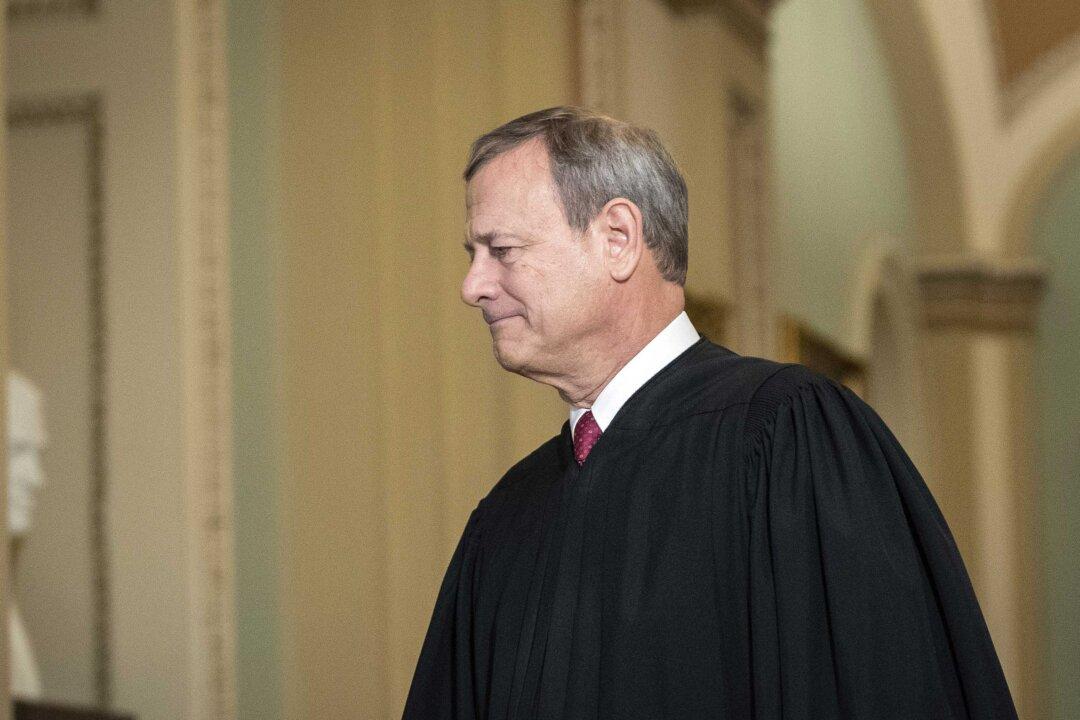Chief Justice John Roberts wrote the lone dissenting opinion in a Supreme Court campus free speech case, saying that a former college student whose lawsuit reached the high court didn’t have standing.
Chike Uzuegbunam, a former student at Georgia Gwinnett College, was seeking nominal damages over an incident when the school prevented him from preaching. An 8–1 majority in the case, led by Justice Clarence Thomas, favored the student.





